Title : The cost and severity of extreme natural disasters: What they mean for society and insurance
Giuseppe Orlando, Universita degli Studi di Bari “Aldo Moro”, Italy
This research introduces a novel approach to estimating the economic impact of natural catastrophes (NatCats) by correlating log-loss severity, modeled using a Vasicek process, with the frequency of occurrences following a geometric Brownian motion. The novelty lies in combining [....] » Read More










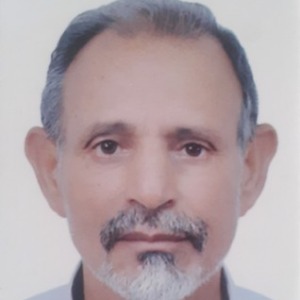

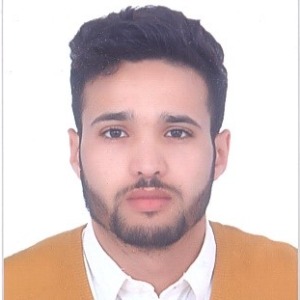
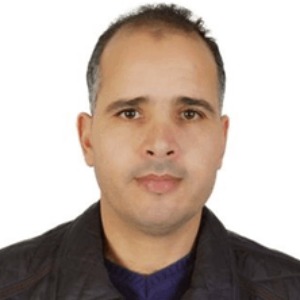
















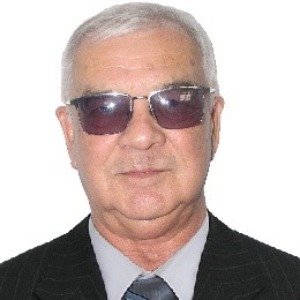

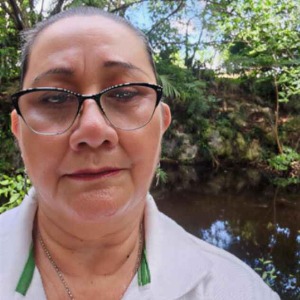

















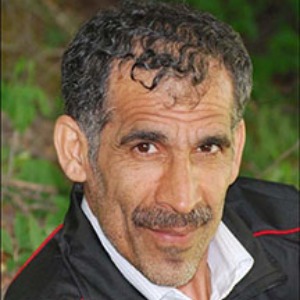







Title : Advancing sustainable aviation fuels: Integrated pathways, analytical validation, and scalable commercialisation
Sanjeev Gajjela, Tomato Sustainables LTD, United Kingdom
Rapid decarbonisation of aviation requires innovative Sustainable Aviation Fuel (SAF) solutions. This work presents a comprehensive multi-pathway approach for SAF production, integrating advanced thermochemical, biochemical, and hybrid processes. At Tomato Sustainables, we optimi [....] » Read More
Title : Young communicating climate change on social media: Facts and proposals
Carme Ferre Pavia, Universitat Autònoma de Barcelona, Spain
In the context of the current climate emergency, effective communication on climate change (CC) is paramount in order to inform and raise awareness. Our research on CC on TikTok, conducted during various Climate Summits, revealed a substantial decrease in the number of CC-related [....] » Read More
Title : The concept of environment and its relationship with humans
Dai Yeun Jeong, Jeju National University, Korea, Republic of
Humans live not only with others, but also in the relation with environment which is the external reality. Therefore, the research on environment is conducted from various perspectives in natural and social science under the name of environmental engineering and environmental soc [....] » Read More
Title : Sustainable low-cost adsorbents for the removal of pharmaceutical contaminants from wastewater
Heather M Coleman, Ulster University, Ireland
The release of antibiotics and other pharmaceuticals into aquatic ecosystems through household, industrial and agricultural wastewater poses significant environmental risks and adverse effects on human and animal health. Conventional water treatment technologies often exhibit lim [....] » Read More
Title : Amateur sports clubs and the politics of sustainability: A critical sociological perspective from Portugal
Ana Santos, Lisbon University, Portugal
Amateur sports clubs are increasingly invoked in public discourse as local allies in the promotion of environmental sustainability and active urban mobility. However, critical sociological and anthropological analysis reveals a deep disconnect between these narratives and the liv [....] » Read More
Title : Sustainability governance in the health-care sector: Case studies of four public hospitals in Latvian
Olga Veilande, Riga Stradins University, Latvia
Climate change puts a twofold burden on the healthcare sector. On the one hand, healthcare must adapt to climate change by transforming the healthcare system to treat climate change-induced diseases and health disorders. On the other hand, it is acknowledged that the healthcare s [....] » Read More
Title : Personalized and Precision Medicine (PPM) as a unique healthcare model through Design-driven biotech and upgraded business marketing to secure the Planetary ecosystem, human healthcare and biosafety
Sergey Suchkov, N.D. Zelinskii Institute for Organic Chemistry of the Russian Academy of Sciences, Russian Federation
A new systems approach to diseased states and wellness result in a new branch in the healthcare services, namely, personalized and precision medicine (PPM). As we attempt to exit the Anthropocene and imagine a new, symbiotic way of existence, the ability to visualize the biologic [....] » Read More
Title : Adsorption of acetone on HNO3-treated AG-3 cctivated carbon: Performance and kinetic study
Tewelde Sahle Tkabo, RUDN University, Russian Federation
The study focuses on enhancing the adsorption of acetone, a prevalent oxygenated volatile organic compound (VOC), using HNO3-modified AG-3 activated carbon (AC) to mitigate its environmental and health impacts. It aims to optimize HNO3 modification of AG-3 AC, targeting enhanced [....] » Read More
Title : Plant microbial fuel cells for net zero emissions, renewable energy, green and sustainable remediation, and waste valorization
Chung Yu Guan, National Taiwan University, Taiwan
The world is facing a convergence of critical challenges, including energy scarcity, climate change, and pervasive environmental pollution. This study proposes an integrated and sustainable solution through the application of Plant Microbial Fuel Cells (PMFCs) across forestry, [....] » Read More
Title : Climate resilience as a key factor for sustainable management: Integrated approaches in Romanian agriculture
Elena Partal, National Agricultural Reasearch and Development Institute Fundulea, Romania
Agriculture in Romania is currently facing major challenges generated by climate change, which affect not only agricultural production but also the long-term sustainability of the sector. In this context, climate resilience becomes a key factor in the efficient management of natu [....] » Read More
Title : Next generation waste management of oilfield produced water via desalination and solid waste utilization
Mukesh Sharma, Oil India Limited, India
Produced formation water (PFW) from mature oil reservoirs presents significant environmental and operational challenges due to its high salinity, elevated total dissolved solids (TDS), and complex contaminants. Conventional disposal methods, such as reinjection or subsurface disp [....] » Read More
Title : Application of solid waste materials for adsorptive removal of toxic phenol from wastewater to protect environment and also to generate circular economy
Ashanendu Mandal, Oil and Natural Gas Corporation Limited, India
This research aims for adsorptive removal of phenol from wastewater by solid waste materials viz. guava tree bark, rice husk, neem leaves, activated carbon from coconut coir, rice husk ash, red mud, clarified sludge from basic oxygen furnace and activated alumina. The characteriz [....] » Read More
Title : Role of artificial intelligence and remote sensing to study chemical processes and breakthroughs in catalytic oxidation to develop technologies for ‘Chemical Remediation of the Aquatic pollution’(cart)
Virendra Kumar Goswami, Indian Institute of Technology & Environment and Peace Foundation, India
Artificial Intelligence and Remote Sensing would be employed to explore the deep seas to understand of the impacts of Ocean Systems Interactions, Risks, Instabilities, and Synergies, ocean-cryosphere interactions and sea-based pollutants on the ocean ecosystem. The Oxidation p [....] » Read More
Title : Puerulus fishing industry in Surigao Del Sur: Practices, gear deployment and price trends, and economic return
Virgilio B Ratunil Jr, Surigao Del Norte State University, Philippines
The discovery of a natural puerulus fisheries resource in Surigao del Sur spurred the local industry in 2015, following the adoption of collection techniques from other provinces. Initial demand was modest, but by 2017, rising demand and prices led to unsustainable practices, suc [....] » Read More
Title : Green energy: Bioethanol production from non-edible macroalgae of Cagayan Province, Northern Philippines
Andy L Catulin, Cagayan State University, Philippines
The study determines the bioethanol production from selected non-edible macroalgae using different microbial fermenters. The bioethanol production included two processes; first involving acid pretreatment was carried out in this study to further degrade the complicated sugar pres [....] » Read More
Title : Mangrove management in the Philippines (1900-2020): Historical lessons for contemporary environmental governance
Michaela Agtarap, Philippine Center for Advanced Maritime Simulation and Training, Philippines
Mangrove ecosystems in the Philippines have undergone profound transformations across the past century, shaped by shifting governance regimes, socio-economic priorities, and environmental pressures. From colonial exploitation in the early 1900s, through post-war aquaculture expan [....] » Read More
Title : Integrating marine geology and oceanographic data to support renewable blue energy resources
Noor Cahyo D Aryanto, National Research and Innovation Agency, Indonesia
An archipelagic nation like Indonesia has significant potential for renewable blue energy, but site selection and risk assessment are constrained by seafloor conditions and its characteristics. From a water column mass perspective, Indonesian waters and deep inter-island passa [....] » Read More
Title : Improved ecosystem condition but reduced services? Modelling corporate land use effects on a watershed in Mauritius
Xavier Koenig, Universite des Mascareignes, Mauritius
Land-use change is a leading driver of climate change and biodiversity loss. In this context, Natural Capital Accounting (NCA) is emerging as a tool for assessing impacts on- and dependencies from- nature at various levels, including businesses in their direct operations and alon [....] » Read More
Title : Belize development opportunities and risks – Environment, economy and employment
Frank Gordon Kirkwood, Independent Researcher, Belize
Belize has a “nature based” economy and its marine resources, particularly the Belize Barrier Reef System and its accompanying Atolls (recognized as a UNESCO World Heritage Site), serve as a major tourist attraction. Tourism is the country’s number one foreign e [....] » Read More
Title : Sustainable utilization of natural resources and agriculture high quality development
Zhongsheng Guo, Northwestern A & F University, Cayman Islands
Agriculture development had gone a long time and now entered a new stage of Agriculture high-quality development . Agriculture high quality development is to take some effective measures to make land produce maximum yield and effect to meet the need of people for a better life an [....] » Read More
Title : Biotechnology treatment of industrial wastewater using higher aquatic plants
Sodik Khuzhzhiev, Navoi State University, Uzbekistan
In this presentation, I describe the harmful effects of industrial wastewater on the environment and examine methods for its disposal using environmentally safe and economically efficient approaches. The study investigated methods for removing cyanide and thiocyanate ions from in [....] » Read More
Title : Assessment of the role of grazing enclosure in the preservation of steppe in the Rogassa region (Southwest of Algeria)
Benkaddour Benyekhlef, University of Ahmed Zabana Relizane, Algeria
The objective of this work is to highlight the importance of grazing enclosure in maintaining biodiversity and preserving degraded areas. The analysis of the real biological spectrum of unprotected land is marked by the strong dominance of Therophytes (50%), on the other hand in [....] » Read More
Title : Origin of sustainability - The nature's wonder of algae
Kian Heng Liew, Liew Strategics, Singapore
The widely used word “sustainability” has many connotations in the built environment. Definition from Oxford Dictionary: sustainability "the sustainability of economic growth" avoidance of the depletion of natural resources "the pursuit [....] » Read More
Title : From peripheral margin to smart city: The impacts of the new Lisbon airport on centrality
Ana Virtudes, GEOBIOTEC - University of Beira Interior, Portugal
In recent decades, metropolitan areas have been profoundly transformed not only by the intensification of the urbanization process, but also by inspiration drawn from the Smart City paradigm. These dynamics extend from consolidated urban spaces to suburban territories, contribu [....] » Read More
Title : The impact of nutrient pollution on Crassostrea virginica populations in the Chesapeake Bay Watershed between the years 2000 and 2019
Pranshu Tyagi, University of Maryland, United States
The Chesapeake Bay, one of the largest watersheds in the United States, has experienced significant ecological stress due to agricultural fertilizer runoff. Between the years 2000 and 2019, populations of Crassostrea virginica (Eastern Oyster) declined as a result of eutrophicati [....] » Read More
Title : Urbanization and flood risk in Abuja, Nigeria under climate change
Akinola Samson Ibukun, Environ Sys Research Institute, Germany
Abuja the capital of Nigeria my country of origin is changing fast. New buildings, roads, and neighborhoods are springing up across the city, but this rapid urban growth comes with a cost: floods are becoming more frequent and severe. My research explores how urbanization, combin [....] » Read More
Title : Pharmaceuticals in the environment: Recent progresses for an effective and responsible environmental risk management
Greta Adorni, Chiesi Farmaceutici SPA, Italy
The presence of pharmaceuticals in the environment is a growing global concern. Chiesi Farmaceutici S.p.A., as a member of the European Federation of Pharmaceutical Industry Association (EFPIA), shares the widespread concern raised by the presence of pharmaceuticals in the enviro [....] » Read More
Title : Bioenergy from biomass waste
Felipe Augusto Moro Loureiro, Tupa Bioenergy, Brazil
Biomass waste, especially from municipal sewage sludge and agro-industrial activities, represents an abundant resource that can be converted into renewable energy through several established and emerging conversion technologies. Key methods include anaerobic digestion, gasificati [....] » Read More
Title : A review of artificial intelligence in chemistry education
Xueli Su, Jingchu University of Technology, China
In the 21st century ,Artificial intelligence (AI) is arguably the driving technological force of this century, and will transform virtually every industry and have an impact on education. AI is the simulation of human intelligence processes by machines, especially computer system [....] » Read More
Title : Design and development of multi functional school furniture
Edward Paul S Marasigan, Forest Products Research and Development Institute, Philippines
This study presents the development and evaluation of the Silyang Pinoy prototype, an innovative enhancement of Department of Education(DepEd) in the Philippines existing school chair and desk designs, integrating a versatile bed feature for use during calamities. The prototypes [....] » Read More
Title : The island nation as system and scale to examine the One Health concept: The case of Mauritius
Xavier Koenig, Universite des Mascareignes, Mauritius
Small oceanic islands are among the last landmasses to be colonised by humans. Their fragile habitats and ecosystems, unprepared for anthropogenic pressures such as land cover changes and invasion by exotic species, have experienced catastrophic declines while growing human popul [....] » Read More
Title : Responsible application of artificial intelligence for Biodiversity (BD) conservation in Mauritius
Lloyd Florens, University of the Mascarenes, Mauritius
Biodiversity is in decline globally, and the main causes are often habitat loss, climate change, invasive species and unmanaged human activity (Dasgupta, 2021, UN 2025). Invasive species have contributed to approximately 40% of animal extinctions since the 17th century, and its d [....] » Read More
Title : Eco-innovations for coastal resilience: Natural alternatives to industrial barriers
Ahmed Fathi Younes Gelany, Syndicate of Scientific Professions, Egypt
Coastal zones are highly vulnerable to the accelerating impacts of sea level rise, storm surges, and anthropogenic pressures. Traditional industrial barriers such as concrete seawalls and steel structures provide rigid protection but often harm marine ecosystems, disrupt sediment [....] » Read More
Title : Activated carbon from Sargassum: Adsorption of diazepam and midazolam in wastewater
Jose Antonio Aceituno Mederos, Instituto Tecnologico de Santo Domingo, Dominican Republic
Since 2011, massive influxes of Sargassum on Caribbean coasts have become a serious environmental problem, generating ecological damage and significant management challenges. At the same time, the presence of pharmaceutical compounds and their metabolites in aquatic environments [....] » Read More
Title : Optical–SAR and GIS fusion with deep learning for InSAR coherence enhancement in deformation mapping
Hadj Sahraoui Omar, Algerian Space Agency, Algeria
The integration of artificial intelligence and remote sensing data into Geographic Information Systems (GIS) is transforming the capabilities of Earth observation and spatial analysis. Within this context, accurate deformation monitoring using Differential Interferometric Synthet [....] » Read More
Title : First recorded predation of the Mediterranean centipede Scolopendra cingulata Latreille, 1789, by The North African ocellated lizard Timon pater (Lataste, 1880) in Chréa National Park, Algeria
Mustapha Aroudj, University of Blida, Algeria
We report the first documented predation event of the Mediterranean centipede Scolopendra cingulata Latreille, 1789 by the North African ocellated lizard Timon pater (Lataste, 1880) in Chréa National Park, Algeria. The predation sequence was fully observed and photographed [....] » Read More
Title : The impact of climate change on agriculture in the Republic of Tajikistan
Majidi Umedjon Kudratullo, Research Institute for Sustainable Development and Green Economy, Tajikistan
This article examines various aspects of climate change and its impact on agriculture. The impact of climate change on precipitation reduction and other hydrometeorological factors is discussed. The study found that rising temperatures in the Central Asian region have reduced ann [....] » Read More
Title : First contribution to the breeding ecology of the common kestrel (Falco tinnunculus) in an urban environment of Blida, Algeria
Mustapha Aroudj, University of Blida, Algeria
This study presents the first long-term assessment of the breeding ecology of the Common Kestrel (Falco tinnunculus) in an urban environment in northern Algeria. Conducted in the city of Blida over five breeding seasons (2019–2023), it highlights the species’ adaptabi [....] » Read More
Title : Integrating governance and climate risk in sustainable road infrastructure development in West Africa
Ibrahima Sow, BOLOGEL, Gambia
Road infrastructure projects in West Africa face a combination of institutional, technical, and environmental risks whose impacts are intensified by increasing climate variability. This paper examines how governance, risk management, and institutional capacity influence the envir [....] » Read More
Title : Modeling of the processes of accumulation of nutrients when using organic waste as fertilizers on sod podzolic soils
Irina Vladimirovna Elshaeva, Saint Petersburg State Agrarian University, Russian Federation
To evaluate the fertilizing and toxicological properties of organic compost enriched with municipal wastewater sludge for their use in agriculture. To construct a mathematical model of the effect of compost enriched with sewage sludge on the agrochemical parameters of the soil. T [....] » Read More
Title : Structural and geological controls on hydrogen generation and migration in neoproterozoic carbonates of the Taoudeni basin: A comparative study between Mali and Mauritania
Bah Dahmane, University of Boumerdes, Algeria
The Taoudenni Basin one of Africa’s largest intracratonic basins remains underexplored but hosts a distinct Paleozoic petroleum system. Drilling of key wells (Ta-7, Ta-8, Ouasaa-1, Abolag-1) confirmed thermally mature Ordovician–Devonian source rocks, widespread silic [....] » Read More
Title : Data-driven modeling and optimization of the coagulation process in water treatment using RSM and neural networks
Sima Malekmohammadi, Imam Khomeini International University, Iran (Islamic Republic of)
Considering the growing demand for drinking water and the increasing use of chemical agents in various purification stages, this study investigated the optimal dosage of PAC (Polyaluminum Chloride) as a coagulant under different conditions. Laboratory-synthesized samples with var [....] » Read More